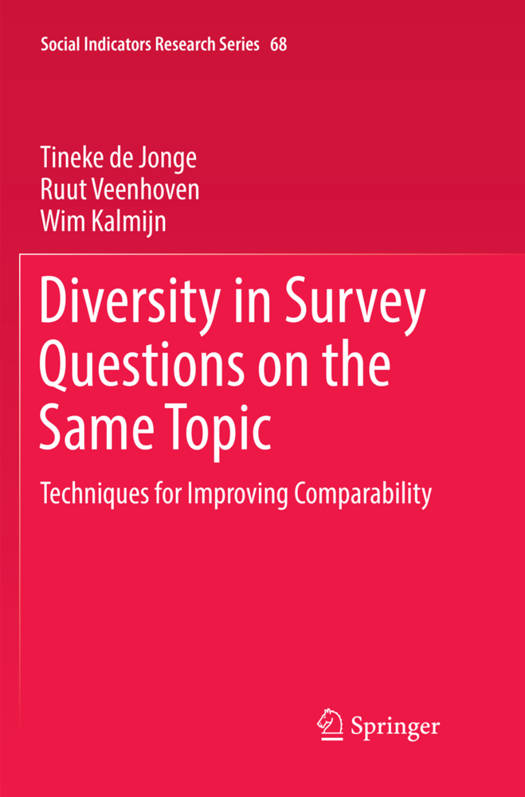
- Afhalen na 1 uur in een winkel met voorraad
- Gratis thuislevering in België vanaf € 30
- Ruim aanbod met 7 miljoen producten
- Afhalen na 1 uur in een winkel met voorraad
- Gratis thuislevering in België vanaf € 30
- Ruim aanbod met 7 miljoen producten
Diversity in Survey Questions on the Same Topic
Techniques for Improving Comparability
Tineke De Jonge, Ruut Veenhoven, Wim KalmijnOmschrijving
This book describes why conventional methods fall short to solve the comparability problem and introduces three successive innovations to overcome these shortcomings. Comparability of results from different surveys using different items for the same topic is greatly hampered by the differences in response scales used. This reduces our accumulation of knowledge and has challenged researchers in the field of survey research for long to develop appropriate methods to transform ratings on different scales to attain comparable results and to correct for effects of changes in measurements and other influencing factors. The three innovations described in this volume are applied to data on happiness and life satisfaction, show better comparability of the survey results concerning the perceptions and opinions of people over time and across nations and at an increased opportunity for meta-analysis on these results.
Specificaties
Betrokkenen
- Auteur(s):
- Uitgeverij:
Inhoud
- Aantal bladzijden:
- 202
- Taal:
- Engels
- Reeks:
- Reeksnummer:
- nr. 68
Eigenschappen
- Productcode (EAN):
- 9783319851075
- Verschijningsdatum:
- 21/07/2018
- Uitvoering:
- Paperback
- Formaat:
- Trade paperback (VS)
- Afmetingen:
- 155 mm x 235 mm
- Gewicht:
- 3801 g

Alleen bij Standaard Boekhandel
Beoordelingen
We publiceren alleen reviews die voldoen aan de voorwaarden voor reviews. Bekijk onze voorwaarden voor reviews.











